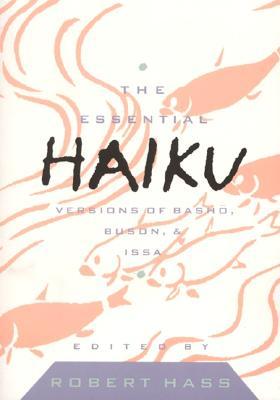American readers have been fascinated, since their exposure to Japanese culture late in the nineteenth century, with the brief Japanese poem called the hokku or haiku. The seventeen-syllable form is rooted in a Japanese tradition of close observation of nature, of making poetry from subtle suggestion. Infused by its great practitioners with the spirit of Zen Buddhism, the haiku has served as an example of the power of direct observation to the first generation of American modernist poets like Ezra Pound and William Carlos Williams and also as an example of spontaneity and Zen alertness to the new poets of the 1950's.
This definite collection brings together in fresh translations by an American poet the essential poems of the three greatest masters: Matsuo Basho in the seventeenth century; Yosa Buson in the eighteenth century; and Kobayashi Issa in the early nineteenth century. Robert Haas has written a lively and informed introduction, provided brief examples by each poet of their work in the halibun, or poetic prose form, and included informal notes to the poems. This is a useful and inspiring addition to The Essential Poets series.
